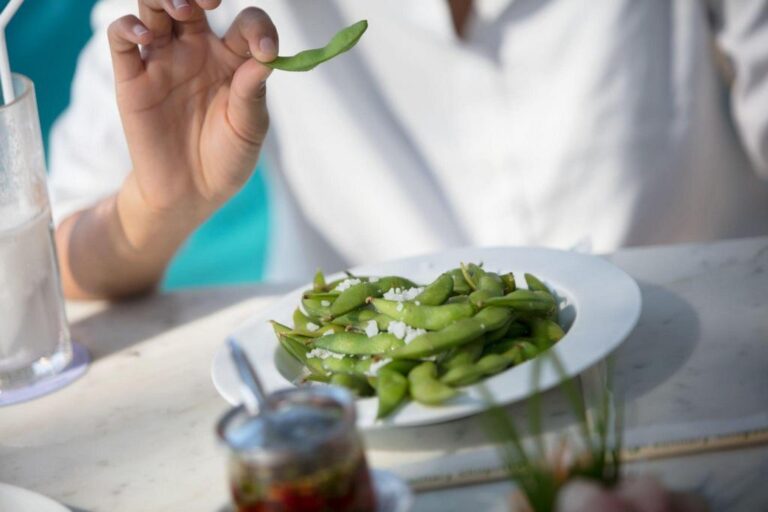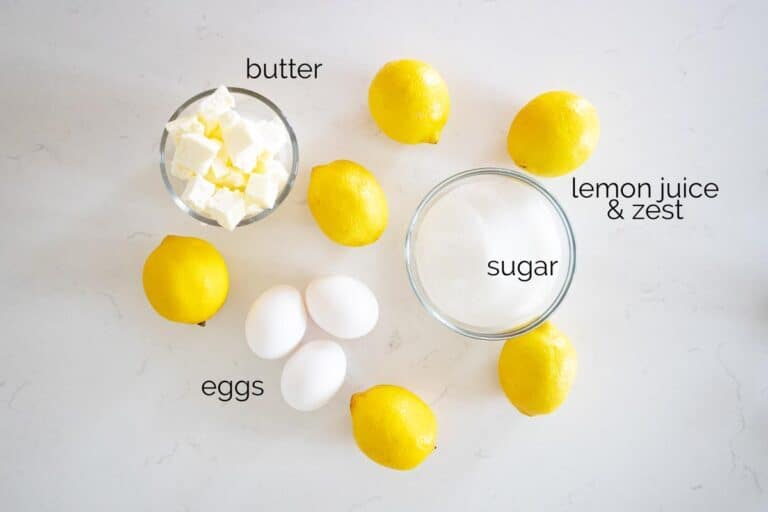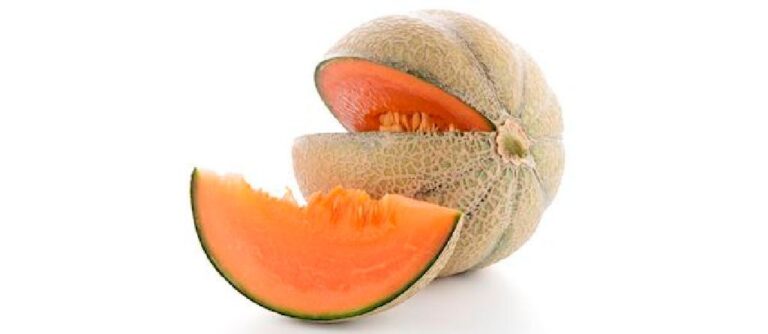Why Does My Cantaloupe Taste Like Acetone and Alcohol? Is It Safe to Eat?

Have you ever been excited to sink your teeth into a juicy slice of cantaloupe, only to be met with an unexpected taste of acetone and alcohol? If so, you’re not alone. This common phenomenon has puzzled fruit enthusiasts for years, leaving them wondering why this beloved fruit can sometimes taste like nail polish remover and a strong drink.
But fear not, as there are explanations for this taste and ways to prevent it. In this article, we’ll explore the science behind why your cantaloupe may taste like acetone and alcohol, as well as some tips for enjoying this fruit without the unexpected flavors. So, if you’re a cantaloupe lover or just curious about the mysteries of fruit flavors, keep reading to discover what causes this strange taste and how to avoid it.
Cantaloupe: Taste, Description, and Nutritional Value
Many people adore cantaloupe because it is sweet and refreshing. This fruit is a member of the muskmelon family, and it has a distinct netted skin with vibrant orange flesh. Vitamins A and C are found in large amounts in cantaloupes. These vitamins are important for good eyesight, healthy skin, and a strong immune system.
They also have many minerals in them, like potassium and magnesium, which help control blood pressure and keep nerves and muscles working well.
The taste of cantaloupe is typically described as juicy, sweet, and slightly musky. The texture of the fruit is soft and succulent, making it a delicious snack or addition to a variety of dishes. When a cantaloupe is ripe, it should be fragrant and give slightly when pressed gently.
Cantaloupes can be eaten on their own, or they can be used in a variety of recipes, such as fruit salads, smoothies, and even desserts. This versatile fruit is perfect for adding a burst of flavor to any dish, and its nutritional benefits make it a healthy choice for any diet.
Why Does My Cantaloupe Taste Like Acetone and Alcohol?
If your cantaloupe tastes bad like acetone or alcohol, it’s not exactly the refreshing and sweet taste you were likely expecting. There are a few reasons why this may be happening, and it’s important to identify the cause so you can avoid any potential health risks and enjoy your cantaloupe to the fullest.
One possible reason for the strange taste is that your cantaloupe is overripe. Overripe cantaloupes have a higher sugar content, which can lead to fermentation and the production of alcohol. When this happens, the fruit can take on a yeasty or alcoholic taste, which is not pleasant for most people. It’s important to pay attention to the ripeness of your cantaloupe to avoid this issue.
Another possible reason for the acetone or alcohol taste is bacterial contamination. Bacteria can easily grow on the skin of cantaloupes, and if they make their way inside the fruit, they can cause fermentation and spoilage. This can lead to an unpleasant taste and smell and also pose health risks if the bacteria are harmful.
Environmental factors can also impact the taste of your cantaloupe. If the fruit was grown in an area with contaminated soil or water, it may have absorbed toxins or pollutants that can affect its taste and safety. It’s important to choose cantaloupes that are grown in safe and healthy environments to avoid this issue.
Other things that could make cantaloupes taste funny are cross-contamination with other foods, bad storage or handling, or being exposed to chemicals or pesticides. If you suspect that any of these factors may be the cause, it’s best to err on the side of caution and discard the fruit.
Preventing the Acetone and Alcohol Taste
To make sure your cantaloupe tastes good and is fun to eat, you must stop it from tasting like acetone and alcohol. If you want to prevent your cantaloupe from tasting like acetone or alcohol, there are a few things you can do. Here is a list of steps you can take to prevent this off-flavor:
- Choose a ripe but not overripe cantaloupe. A ripe cantaloupe should feel slightly soft to the touch and have a sweet, fragrant aroma.
- Properly store the cantaloupe to prevent bacterial contamination. Always wash your hands before handling the fruit, and wash the outside of the cantaloupe thoroughly with clean water before cutting it open.
- Use a clean, sharp knife to slice the cantaloupe, and discard any areas that appear to be spoiled or discolored.
- If you’re not planning to eat the entire cantaloupe at once, store the remaining pieces in an airtight container in the refrigerator. This will help slow down the fermentation process and keep the fruit fresh for longer.
- Avoid storing cut cantaloupe at room temperature, as this can promote bacterial growth and spoilage.
- Don’t mix the cantaloupe with other fruits or vegetables that may be in a state of fermentation.
- Consider adding a squeeze of lemon or lime juice to your cantaloupe to help balance out any off-flavors and add a burst of refreshing acidity.
Enjoying Cantaloupe Without the Acetone and Alcohol Taste
If you’re looking for a unique and savory twist, try grilling cantaloupe. Simply cut the cantaloupe into slices and place them on a grill for a few minutes on each side. This enhances the natural sweetness of the fruit and adds a smoky flavor.
To reduce the alcohol and acetone taste in cantaloupe, choose a ripe fruit. Look for a cantaloupe that is fragrant and feels heavy for its size. A ripe cantaloupe will also have a slightly soft feel on the stem end. Avoid cantaloupes with green or white patches, as these indicate that the fruit is underripe.
Keeping the cantaloupe in the right way is another way to lessen the acetone and alcohol taste. Once you’ve cut into the fruit, wrap the remaining pieces tightly in plastic wrap or store them in an airtight container in the refrigerator. This will slow down the fermentation process and prevent the fruit from becoming too ripe.
Lastly, consider pairing cantaloupe with complementary flavors that can balance out the taste. For example, adding a sprinkle of salt, a drizzle of honey, or a squeeze of lime can help to enhance the sweetness of the fruit and neutralize the alcohol and acetone tastes.
Is Overripe Cantaloupe Safe To Eat?
Cantaloupe is a popular fruit with a sweet, juicy flavor that can be enjoyed on its own or added to salads, smoothies, and other dishes. However, when left too long, cantaloupe can become overripe, which can raise concerns about its safety for consumption.
Overripe cantaloupe can become mushy and develop a strong, unpleasant odor. The flesh may also become discolored or watery. While these changes are not necessarily harmful to consume, they can indicate that the cantaloupe is past its prime and may not taste as good as it would have in its prime state.
However, there are some safety concerns associated with overripe cantaloupe. As the fruit begins to break down, it can become a breeding ground for harmful bacteria like Salmonella, Listeria, and E. coli. These bacteria can cause foodborne illness if consumed, which can lead to symptoms like nausea, vomiting, diarrhea, and fever.
Most of the time, it is best not to eat cantaloupe that is too ripe because it could make you sick. If you do choose to eat an overripe cantaloupe, make sure to thoroughly wash the outside of the fruit and cut away any discolored or mushy parts before consuming. It is also important to store cantaloupe properly to prevent it from becoming overripe too quickly.






